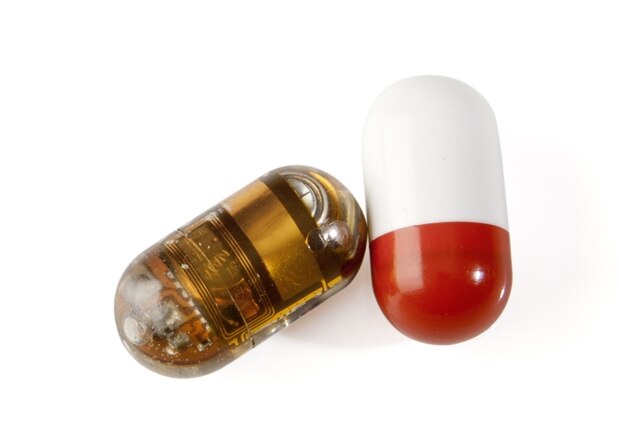BodyCap, a French start-up company that specializes in miniaturized wireless monitoring devices today announced it has tested its e-Celsius Performance connected pill for temperature monitoring on ten FC Nantes soccer platers during two French League 1 games. Using e-Celsius Performance the club was able to measure the effectiveness of recovery techniques such as ice treatment for players.
e-Celsius Performance is an ingestible pill that continuously monitors the user’s internal temperature, helping to minimize the risks of hypothermia and hyperthermia for elite athletes. Once the pill is ingested, the athlete has complete freedom of movement, as there is no requirement to wear a monitor. Every 30 seconds, the pill wirelessly transmits the athlete’s gastro-intestinal temperature measurements to a monitor called e-Viewer Performance. The monitor, which can be connected with up to three pills simultaneously, shows alerts when the measurement is outside the set range. The pill stores measurements for up to 16 hours when away from the monitor.This data is then wirelessly transmitted once the pill is back within a 3-meter range.
Staff at FC Nantes used e-Celsius Performance during training and in two French league matches, against Rennes on September 13 and Paris Saint-Germain on September 26. The aim was to analyze the players’ ability to regulate their temperature during warm-up and play and then track the return to baseline values during recovery. With better knowledge of each player's ability to regulate their core temperature, it is believed that sporting performance can be improved.
The pill is swallowed a few hours before the start of the match, allowing temperature to be monitored throughout the game.
e-Celsius Performance is used to monitor players during the ice treatment phase of their post-match recovery, to help them recover more quickly from their physical exertions and to relieve associated aches and pains. The data obtained from the pill will help to introduce individual recovery programs for each player, based on their capacity for recovery, their position on the field and weather conditions.
FC Nantes retrieves the player’s temperature data the day after the games. The data helps to create a detailed analysis of each player’s responses and measures the impact of the recovery techniques used by the club, including the post-match sleep. With regular use, the data on individual players is expected to help in fine-tuning and tailoring their training and development programs. The aim, of course, is to significantly improve player performance on the pitch.

